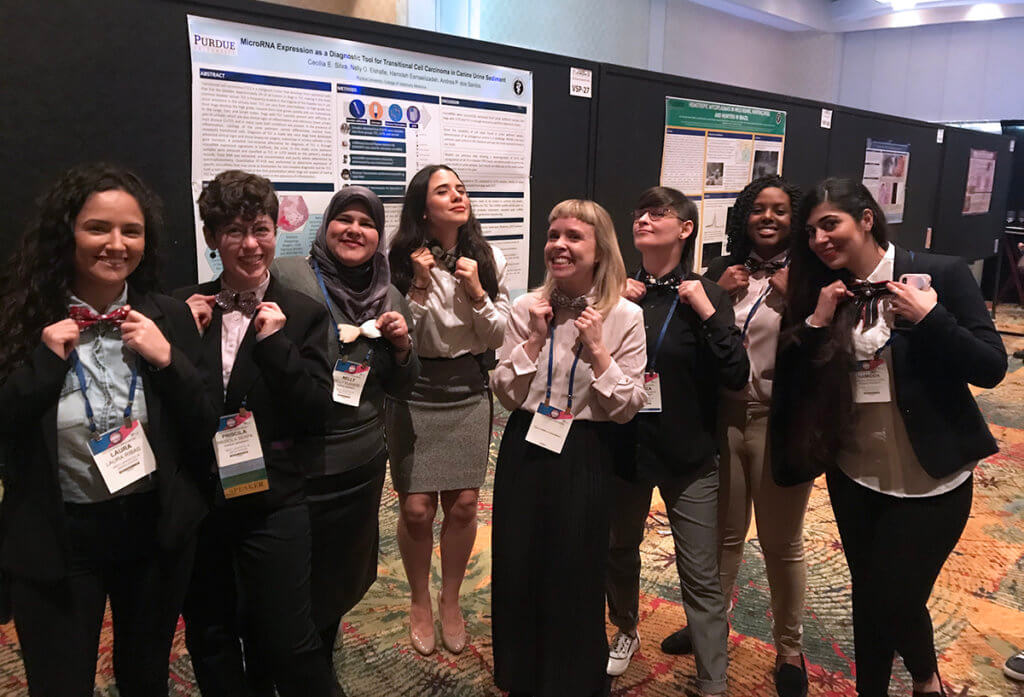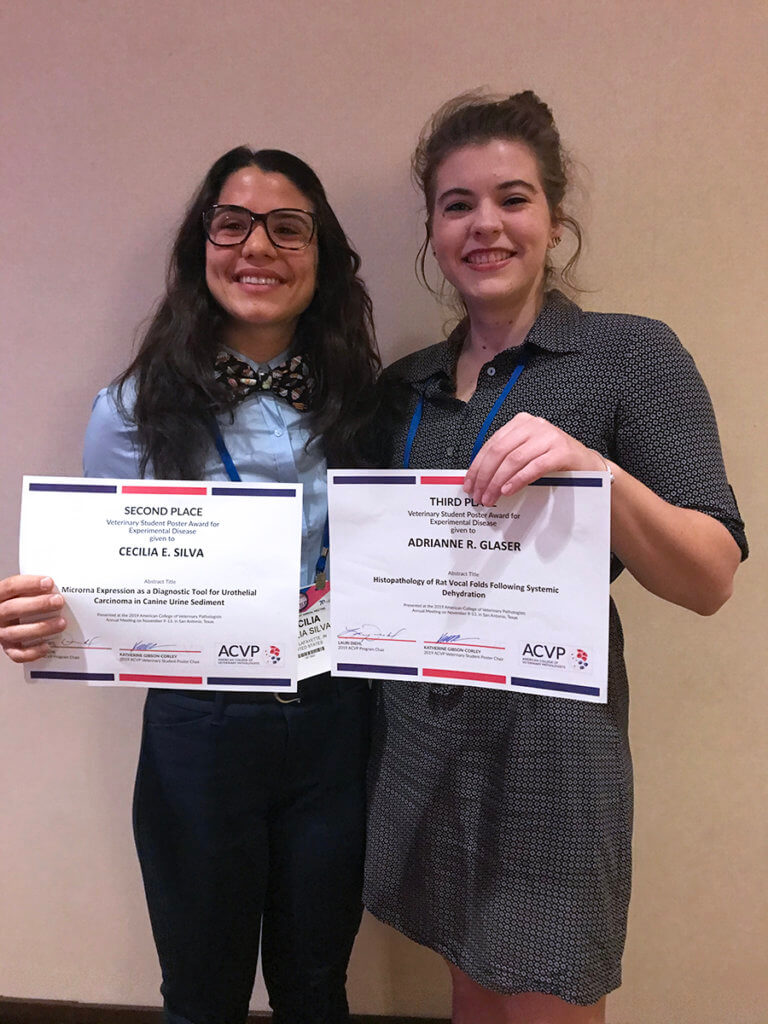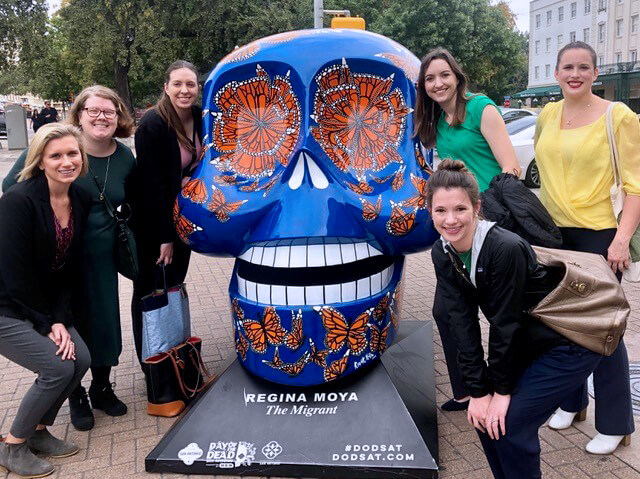
Purdue Veterinary Medicine was well represented at the 2019 Concurrent Annual Meeting of the American College of Veterinary Pathologists (ACVP) and the American Society for Veterinary Clinical Pathology (ASVCP), with a number of DVM and graduate students participating in award competitions. Two Department of Comparative Pathobiology faculty members, Dr. Andrea Pires dos Santos, assistant professor of veterinary clinical pathology, and Dr. Abigail Cox, assistant professor of veterinary anatomic pathology, went to the conference with several young researchers from their labs, a number of whom earned awards.
Students from Dr. Santos’ laboratory won four awards. Cecilia Silva, of the DVM Class of 2021, received the second place award in the DVM Poster Competition’s Experimental Disease category for her poster entitled, “MicroRNA Expression as a Diagnostic Tool for Urothelial Carcinoma in Canine Urine Sediment.” Dr. Priscila Serpa and Dr. Natalia Strandberg, clinical pathology residents, received the ASVCP Share the Future Research Grant Award for research on “Validation of a Flow Cytometry-based Cell and Differential Counts in Chickens.” The grants support research done by clinical pathology residents and graduate students who are selected based on the quality of the research proposal and the potential for contributing to the knowledge base of veterinary clinical pathology, among other criteria. Dr. Serpa also received one of the ASVCP Share the Future Travel awards, which help offset travel costs for clinical pathology residents or graduate students who give talks or poster presentations at the annual meeting.

Drs. Serpa and Strandberg as well as Dr. Hamideh Esmaelzadeh, visiting scholar in the Department of Comparative Pathobiology, took part in the ASVCP Mystery Slide Case session of the annual meeting. Dr. Santos says the Mystery Slides and Case discussions are a highlight of the Annual ACVP/ASVCP conference. For the Mystery Slide session, participants submit write-ups about challenging clinical cases before the annual meeting and the best cases are selected by a committee. Then those cases are shared with all the residency programs and meeting attendees, which receive a box of slides that contain the cases without the diagnoses. That way everyone has the chance to study the cases before the conference. Then, during the Mystery Slide session, the cases are discussed and the diagnoses are revealed, which makes the presentations very engaging and fun.
“Getting the opportunity to present a Mystery Slide case is a very competitive process, and it is challenging for the residents to face an audience of people who have also studied the cases so thoroughly,” said Dr. Santos. Though there is no award for presenting the case, getting there is a big deal, and we are very proud of our residents for doing so.”
Others from the Santos Lab who presented posters included Asia Fernandes, of the DVM Class of 2021; Laura Ribas, a DVM student visitor from Brazil; and Dr. Mara Varvil, PhD student and graduate teaching assistant in clinical pathology. Dr. Nelly Elshafie, CPB graduate student, also was able to present her research thanks to a travel award from the Purdue Graduate Student Government, which covered the costs of her trip to the meeting.

PVM student researchers from the Cox Laboratory also participated in the annual meeting. Adrianne Glaser, of the DVM Class of 2022, won third place in the Experimental Disease category of the DVM Poster Competition for her poster entitled, “Histopathology of Rat Vocal Folds Following Systemic Dehydration.” Anatomic pathology residents who participated in the conference include Drs. Jessica Hanlon, Melissa Swan, Caitlin Brown, Stacey Piotrowski, and Katelin Davis. Drs. Swan and Brown gave talks during the Experimental Pathology session. Drs. Hanlon, Piotrowski, and Davis participated in the poster sessions. Dr. Naila Cannes do Nascimento, a research associate with Dr. Cox’s lab, also participated in the poster sessions. The 2019 Annual ACVP/ASCVP Meeting was held in San Antonio, Texas from November 9-13.
